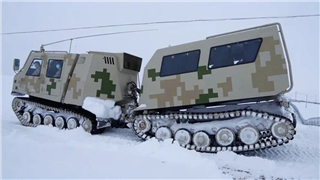“We must remind Japan that if the radioactive nuclear wastewater is safe, just dump it in Tokyo, test it in Paris and store it in Washington, but keep our Pacific nuclear-free.” Vanuatu’s famous politician Motarilavoa Hilda Lini spoke for all people living in the Pacific region when making this statement.
The Japanese government announced in April 2021 that it will begin dumping the nuclear wastewater stored at Fukushima into the ocean from the spring of 2023. As that day is approaching, the international community is voicing waves of objection, and people living in the Pacific region have consistently expressed their strong protest. Analysts said if Japan did discharge the wastewater into the Pacific Ocean as planned, the Pacific countries would have the right to claim damages.
Japan decided to just dump the wastewater into the ocean in order to save trouble and money, at the price of transferring nuclear contamination to the whole world, which is extremely irresponsible and selfish. South Pacific countries have suffered enough from nuclear contamination. From 1946 to 1958, the US conducted 67 nuclear weapon tests on the Marshall Islands, the aftermaths of which are still haunting the local residents in the form of radioactive poisoning, contamination of marine species, and leak from radwaste landfill.
The Fukushima nuclear station had the highest-level nuclear accident that produced an enormous amount of nuclear wastewater – more than 1.3 million tons in storage right now. Even though Japanese politicians claimed that the wastewater is safe enough for drinking after being treated with the Advanced Liquid Processing System (ALPS), that’s simply not true.
A Japanese NGO recently released an article saying that treated nuclear wastewater still contains 64 kinds of radioactive substances, including tritium, which, once released into the ocean, will contaminate the marine environment and spread through the food chain, till eventually taking a toll on human health and the ecological environment. A report released by Greenpeace, an international environmental protection organization, showed that the technology currently adopted by Japan cannot get rid of the Sr90 and C14 in the wastewater, which are even more damaging than tritium with their half-life of 50 years and 5,730 years respectively.
It’s foreseeable that dumping Fukushima’s more than 1.3 million tons of nuclear wastewater into the ocean is a murderous move for people living along the ocean and will put the marine ecology at stake with irreversible outcomes. A renowned environmental protection organization of Pacific island countries said that such an irresponsible move of transboundary pollution is no different from waging a nuclear war against the people and the islands in the Pacific region.
As a contracting party to the United Nations Convention on the Law of the Sea, the Convention on Early Notification of a Nuclear Accident, and the Convention on Nuclear Safety, Japan has knowingly violated them all by making such a dangerous decision. Without exhausting all safe means of disposal, disclosing all information, or fully consulting with surrounding countries and international organizations, the Japanese government went ahead and unilaterally decided to dump its wastewater into the ocean in a flagrant attempt to pass on the disastrous consequences to other Pacific countries. Those countries have every right to defend their rights and interests through legal means.
In fact, there are already precedents for claims of this kind. For instance, the International Arbitration Tribunal ruled in 1938 and 1941 that Canada’s Trail Smelter should compensate America’s State of Washington for the damages caused by the SO2 it emitted. The “Trail Smelter case” is generally considered the basis for holding countries committing transboundary pollution accountable. Countries along the Pacific Ocean can totally refer to it and pursue claims against Japan after scientifically measuring the damages imposed upon them.
The ocean is the common wealth and symbiotic home for humanity. Dumping nuclear wastewater into it is not Japan’s internal affair. Right now the IAEA is still conducting a comprehensive evaluation of the wastewater at Fukushima, and Japan’s pushing for the dumping plan reveals its intention to make it a fait accompli regardless of the concerns of other parties. Japan’s egregious atrocities in history have already caused horrendous miseries to the surrounding countries. Does it plan to add another entry to its infamous track record now?
Editor's note: Originally published on news.cri.cn, this article is translated from Chinese into English and edited by the China Military Online. The information and opinions in this article do not necessarily reflect the views of eng.chinamil.com.cn.











